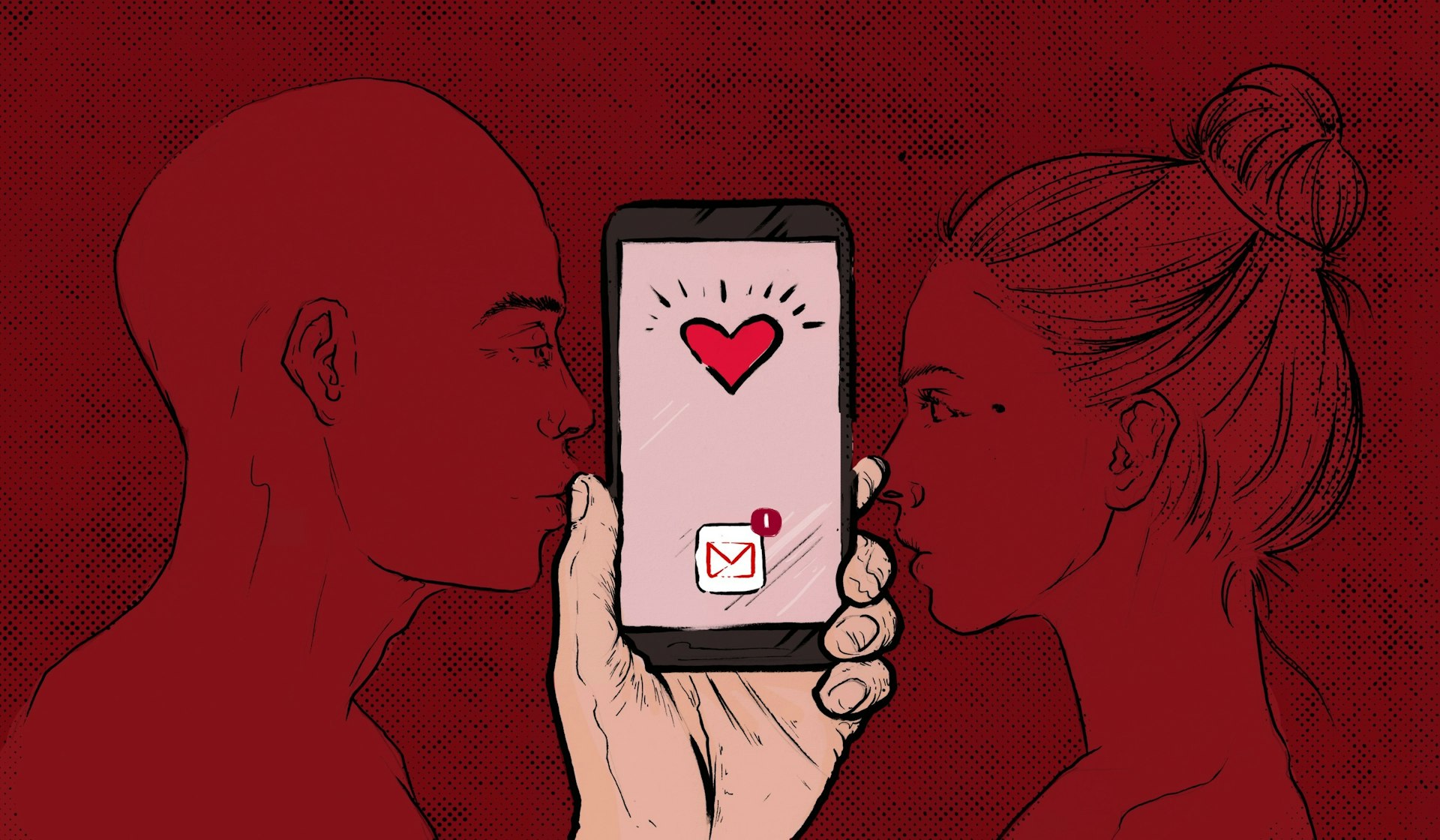
In the age of internet, no relationship is solely offline
- Text by Emily Reynolds
I was hurt very badly recently, and it made me think of the film You’ve Got Mail. A kitschy relic of the early internet era, You’ve Got Mail thrives, like many romantic comedies, on the meeting of oppositional forces; of soulless capitalism and solidarity, individualism and community, of the global and the hyper-local.
The two leads are framed as such, too. Meg Ryan’s Kathleen Kelly is a charming, principled owner of a specialist children’s bookshop; Tom Hanks’ Joe Fox is the brash and braying businessman intent on destroying it for profit. Their lives are so different, their personalities so divergent, that it seems breathlessly impossible that they could even be in the same room together, let alone fall in love.
Online, however, they’re different people, connecting on a level they never quite manage when they meet in person. Online they are shapeless: the bodies that keep betraying them when they meet in person are irrelevant, the social conventions and positionings that keep them so firmly tacked in place are transcended. At the start of their online relationship they agree to never share names, information about their class or family or careers. They talk in concepts instead, in emotion; their anxieties, their fears, their dreams, their beliefs. How they behave – least of all to each other – isn’t in the picture at all.
The technology so central to You’ve Got Mail has long gone extinct; the ping of an AIM notification no longer sounds like excitement, just nostalgia. But the dualism the film promotes is still pervasive in the way we think about how these two lives – online and offline – intersect, and in the way we categorise our thoughts, feelings and behaviours. It places feeling over action – sensation and emotion over response or performance – as if the two never intersect, as if our thoughts are a pure and undiluted distillation of who we are. “Is there someone else?” Kathleen’s boyfriend asks. “No,” she replies. “But there is the dream of someone else.”
In reality, it’s all of these things that make a person whole. Truly good sex isn’t just pure physicality; it’s a connection between two people. But it’s also essential that it’s deeply, viscerally rooted in the body; the two simply can’t come unstuck. “I love this, partly because it involves writing and that’s an action that fulfils me,” my penpal wrote to me one evening as we discussed our connection. “But there’s no online equivalent to lying on a couch with someone.”
Our connections online are real and important, even, or perhaps especially, those we have with strangers or people we may never meet; nothing could ever convince me otherwise. But writing or feeling something isn’t any more pure or authentic than doing something; feeling does not always take precedence over behaviour. The two are not so dissimilar, either: to speak – to type, to tweet, to feel – is to act, too.
Sometimes people behave as if they love you and then say they don’t, act surprised when the conflict confuses you. More often they’ll swear that they love you and treat you otherwise. At the end of You’ve Got Mail Joe and Kathleen fall in love. But he’d still tried to crush her.
Follow Emily Reynolds on Twitter.
Enjoyed this article? Like Huck on Facebook or follow us on Twitter.
